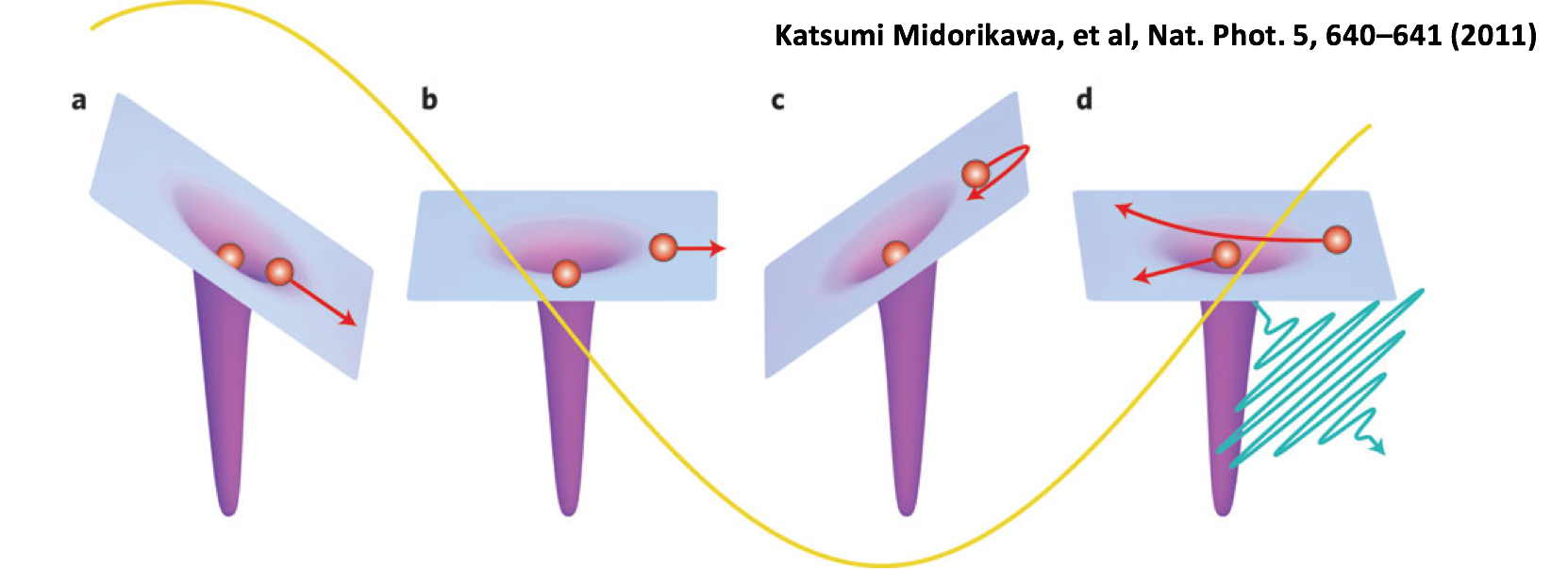Contents

Source: KMLabs
<>
Understanding High Harmonic Generation
When an intense light pulse is focused into a gas at reduced pressure, it can lead to the generation of very high odd harmonics of the optical frequency of the pulse. This extreme form of nonlinear frequency conversion occurs at optical intensities of around 10^14 W/cm2 or higher.
Applications of High Harmonic Generation
High harmonics can be used for creating ultrashort pulses with attosecond durations in the extreme ultraviolet spectral region. These pulses are valuable for fundamental studies of electronic motion in various materials and have the potential to generate even shorter zeptosecond pulses.
Generation Process
The process involves a passively mode-locked laser and a regenerative amplifier based on titanium–sapphire crystals as the gain media. Recently, an enhancement resonator has been used to achieve higher repetition rates exceeding 100 MHz.
Detection and Optics
For detecting weak high harmonics, a microchannel plate followed by a phosphor layer and a CCD image sensor can be utilized. Special ultraviolet optics are necessary for handling the generated ultraviolet light, with reflective optics being the primary choice for shorter wavelengths.
Physical Processes
While the detailed physical processes behind high harmonic generation are complex and often require numerical quantum simulations, a basic understanding can be obtained through simplified models describing the interaction of electrons with strong electromagnetic fields.
Conclusion
High harmonic generation opens up a world of possibilities in generating ultrashort pulses and studying electronic dynamics at the smallest timescales. The field continues to advance, offering new insights and applications in various scientific disciplines.

Source: jusparc – Forschungszentrum Jülich
Feel free to comment your thoughts.



